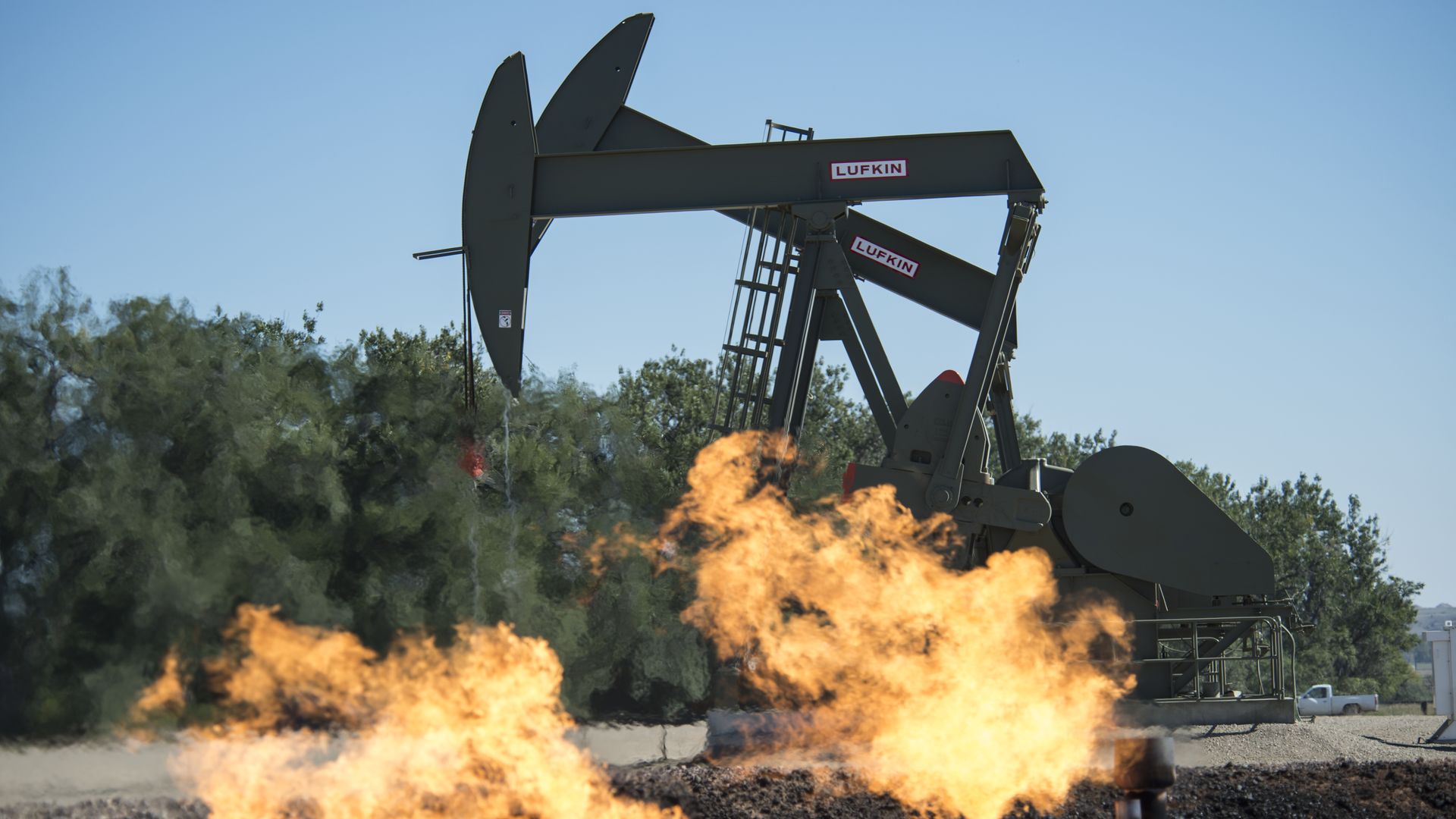Feb 19, 2020 - Science
Study: Methane gas emissions could be greater than previously known
Add Axios as your preferred source to
see more of our stories on Google.

Flaring natural gas burns by jack pumps at an oil well near Buford, North Dakota. Photo: William Campbell/Corbis via Getty Images
